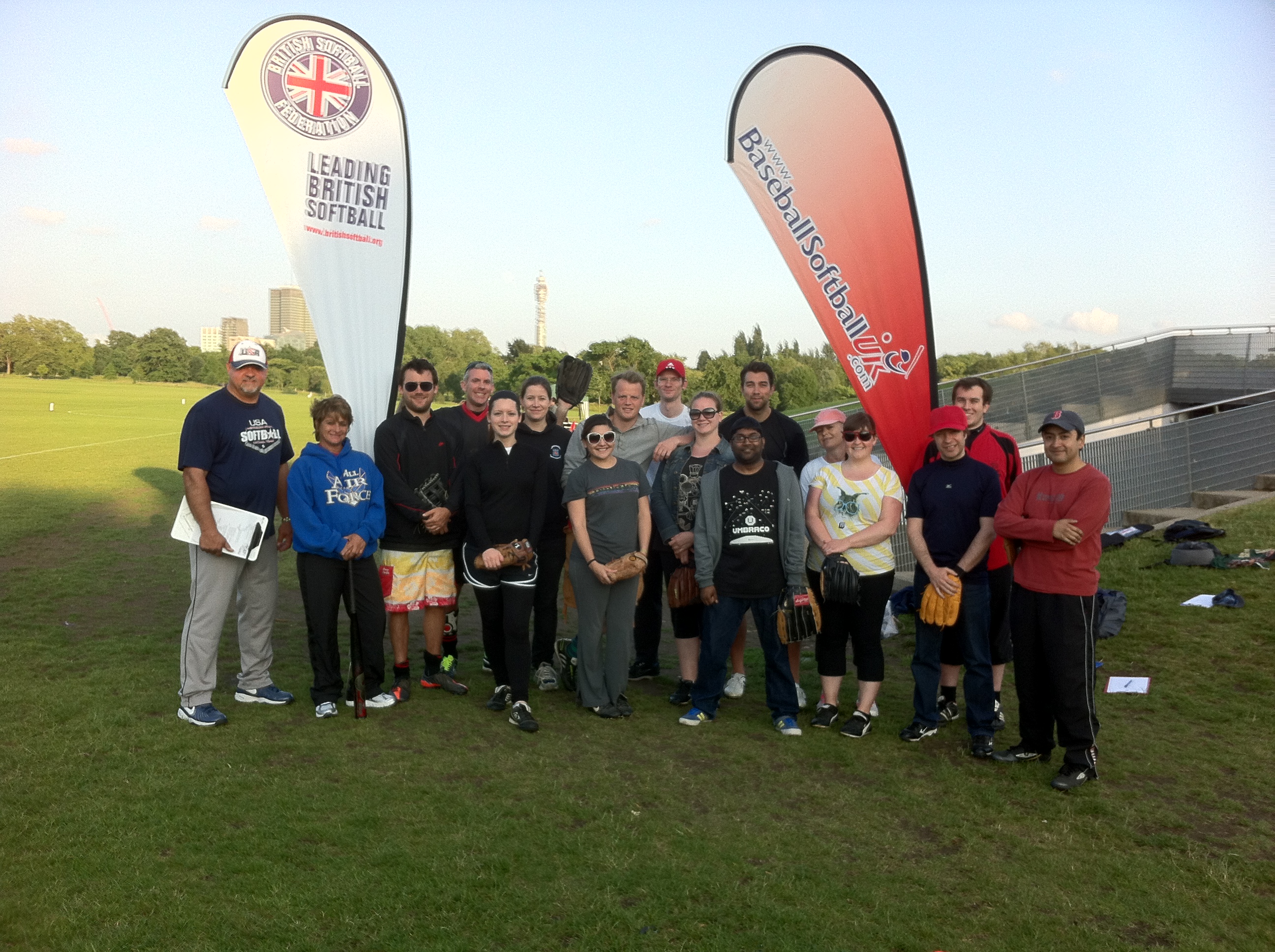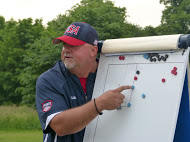
The two coaches are Steve Shortland, currently Head Coach of the USA Men's Slowpitch Team and Cheryl Trapnell, former All-Armed Forces Women's Slowpitch Head Coach, who has spent time previously in the UK.
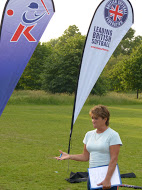
London start
Steve and Cheryl arrived in London on Thursday, 20 June and went straight to work that evening, running a session in Regents Park for 11 coaches from the Greater London Softball Mixed League and three from the London Advertising Softball League.
The topics included pre-game warm-up drills, outfield cut-off drills, double play techniques and how to make more effective use of the catcher in slowpitch, along with some pitching and batting strategy and ideas for line-up optimisation.
This was followed by an open-air meal at the Edinboro Castle pub near Regents Park, in the company of many of the softball teams that had just finished their league games.
After sightseeing on Friday 21 June in London with BSF Treasurer Mike Jennings, Steve and Cheryl ran another session in Regents Park that evening for nine coaches from the Ad League and six from the GLSML. The topics were similar to those on Thursday, but there was a review section at the end to see how much information had been assimilated, and there were plenty of questions from the trainees throughout the session.
Comments
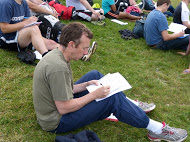
“Excellent knowledge and experience. Some great quick drills to keep the whole team involved.”
“Having a pre-read was great prep, as were clipboards and pens. Good mix of teaching and demos.”
“These guys were great and their enthusiasm was infectious. Really useful and clear coaching, with a good insight, especially into training / warming up with limited time before a game.”
“Very useful, but multiple sessions would be even better.”
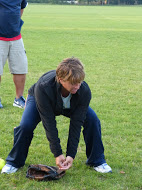
“Great session! Easy to learn from positive coaching.”
“Awesome! If only my team could all have been here too.”
Pioneers Tournament
The ASA coaches spent the weekend of 22-23 June at the Pioneers Tournament in Canterbury, observing and interacting with team coaches, some of whom had requested in advance that Steve or Cheryl join them “on the bench” for game management tips and advice.
Late on Saturday afternoon, there was a chance for Steve and Cheryl to work with members of the GB Slowpitch Team in preparation for the upcoming European Slowpitch Championships in the Czech Republic.
Moving on
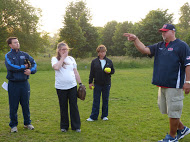
On the weekend of 29-30 June, Steve and Cheryl will work with teams on game management and strategy at the Leeds Tournament, and the tour will finish with a session for team coaches from the Edinburgh and Central Scotland (Glasgow) Leagues on 2 July.
The tour has been organised by Mike Jennings on behalf of the BSF and is being monitored by BSUK National Development Manager Will Lintern, who is responsible for BSUK coach education programmes. The hope is that further coach-training initiatives can be developed and delivered in slowpitch softball in the wake of the tour.
Thanks are particularly due to the ASA, who have now arranged for two sets of high-level slowpitch coaches to come to the UK over the past three years, and paid for their flights, based on a development agreement between the ASA and the European Softball Federation.
